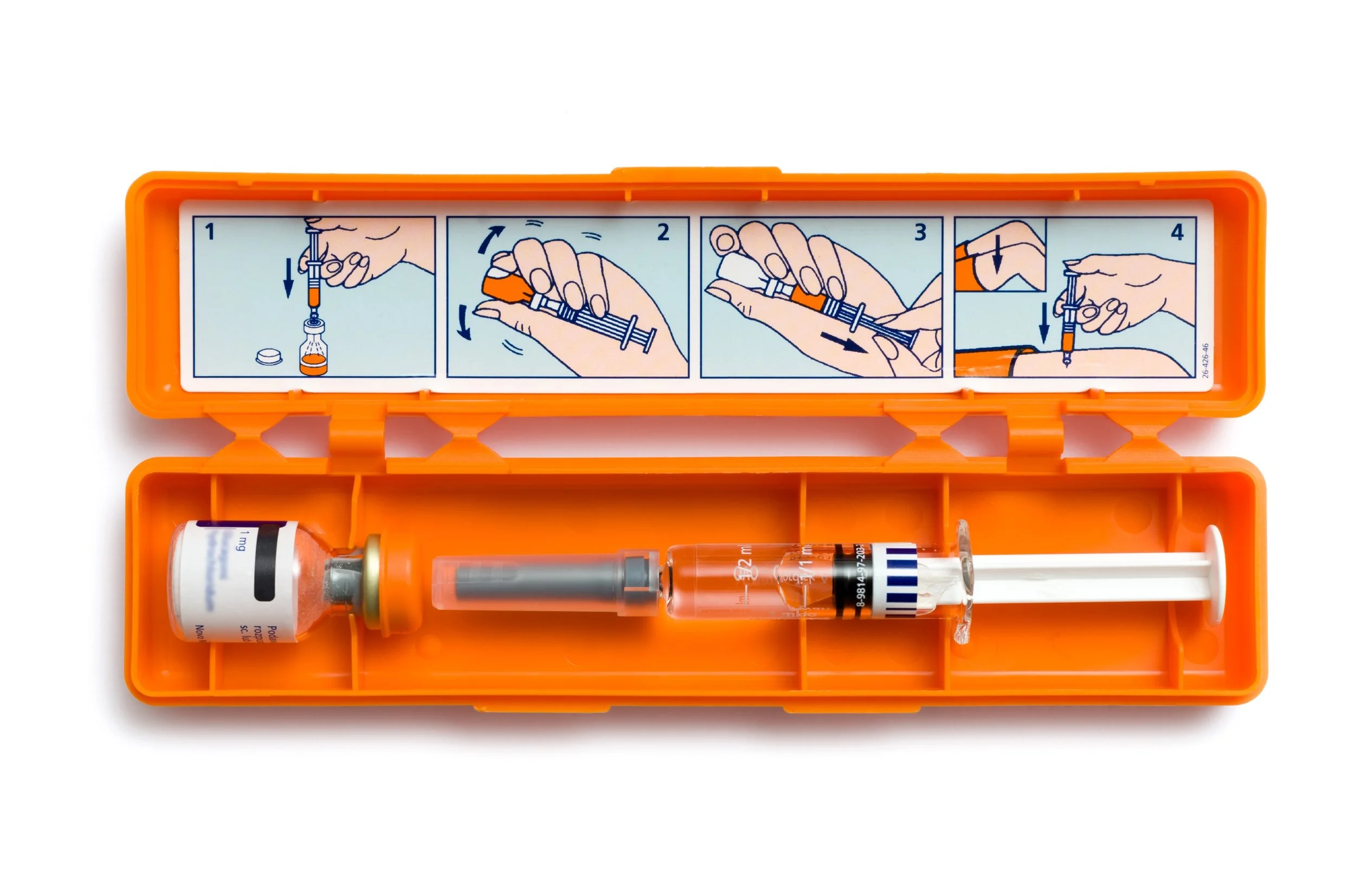Data, collaboration & advocacy key to navigating severe shortage of lifesaving drug
Overview
If you’ve recently had trouble getting a prescription filled or buying certain over-the-counter medications, you’re not alone. Drug shortages are an unfortunate daily reality in Canada, and like your neighbourhood pharmacy, they often impact hospitals as well.
Canada’s pharmaceutical supply chain relies on a limited number of domestic drug manufacturers, with the majority coming from international suppliers. When manufacturers discontinue products, it can disrupt the supply of medications Canadian hospitals count on and adversely impact patient care.
In 2023, Canadian hospital pharmacies were hit with a severe shortage of glucagon, an injectable hormone. Glucagon is used as an antidote for certain overdoses, as well as to treat low blood sugar – including in children and newborn babies. Canada had only two domestic manufacturers for this lifesaving drug, and when both discontinued glucagon production, the result was a Tier 3 Health Canada shortage.
A Tier 3 shortage is one that has the greatest potential impact on the health care system and, ultimately, Canadian patients. Mohawk Medbuy’s (MMC’s) Pharmacy Team quickly stepped up to help Member hospitals navigate this critical shortage.
Procurement Benefits
Glucagen® HypoKit.
The Challenge
MMC’s approach to procurement is centered on the best possible patient outcomes – extending throughout the entire contract lifecycle. “For MMC, procurement doesn’t end when a contract is awarded,” said Sonja Sawh, Senior Director, Pharmacy Services. “Our end-to-end support means we’re there for our Members when supply disruptions occur. MMC’s approach to the glucagon shortage is based on harnessing our data, collaborating with Members and vendors and ongoing advocacy at the government level.”
Tier 3 shortages, as was the case with glucagon, allow for foreign drugs to be imported on an exceptional basis until a stable Canadian supply can be established. MMC’s comprehensive data analytics and strong relationships with Members allowed the organization to quickly assess hospital sites’ short- and long-term needs for glucagon. MMC’s Pharmacy team also collected expiry date information from vendors to help ensure product with earlier dates was used first.
“By collaborating closely with Members and vendors, we generated a plan to conserve and equitably allocate the remaining Canadian supply, and foreign-imported supply, until new Canadian product was available,” added Sonja.
The Outcome
As part of the Provincial and Territorial Drug Shortages Task Team, MMC amplifies the voice of Member hospitals at the federal government level. During the glucagon shortage, “MMC brought important data to the table – a projected timeframe for the depletion of our Members’ available supply,” said Sonja. “Armed with this picture of the situation’s criticality, Health Canada continues to work with multiple manufacturers to explore bringing new approved glucagon products to the Canadian market.”
MMC’s supply chain expertise, significant data pool and value-added support are important resources for hospital pharmacists, who report spending 20% of their time dealing with drug shortages. “MMC has been with us every step of the way during the glucagon shortage,” said Susan Cubelic, Director, Pharmacy Services at Niagara Health. “Their partnership and support reduce the workload of our pharmacy staff and help mitigate the risk to patients whenever supply disruptions occur.”
Recurring drug shortages illustrate the complexity and fragility of our pharmaceutical supply chain. With a collaborative and data-focused approach, MMC is supporting continuity of care across Canada.
Sources:
Canadian Pharmacists Association. Drug Shortages.
Canadian Pharmacists Association. Managing Current Drug Shortages.
Drug Shortages Canada. Drug Shortage Report for GLUCAGEN® HYPOKIT.





